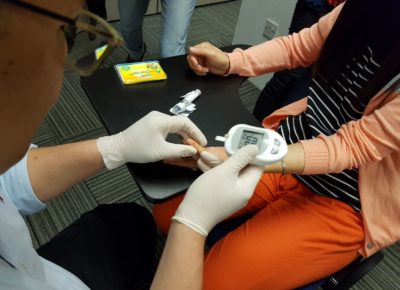Understanding the Stress of Nursing Education
Pursuing a nursing degree or a nurse practitioner course, is a demanding journey. Students often face long hours of study, clinical practice, and the pressure to excel. This can lead to stress and burnout. Making mental health a critical issue for nursing students.
In Singapore, known for its excellent healthcare. Nursing students face challenging studies and practical training. For example, the National University of Singapore has a strict nursing course. It gets students ready for the hard parts of healthcare. But, this hard training can also affect their mental health.
Building Resilience Through Self-Care
Self-Care Practices:
Self-care is vital for nursing students. It involves activities that nurture physical, mental, and emotional health. Here are some practical self-care strategies:
-
Physical Activity: Regular workouts, reduce stress and boost your mood.
-
Balanced Diet: Eating a balanced diet helps maintain energy levels and overall health.
-
Adequate Sleep: Prioritizing sleep is essential for cognitive function and stress management.
Mindfulness and Relaxation:
Practices like meditation or deep breathing can help nursing students. Stay calm and lower their worry. Relaxation techniques like listening to music or reading can also be beneficial.
Time Management Skills
Effective Planning:
Good time management is crucial for nursing students. It helps in balancing academic responsibilities with personal life. Tips for effective time management include:
-
Setting Priorities: Focus on urgent and important tasks first.
-
Creating a Schedule: Use planners or digital tools to organize tasks and deadlines.
Taking Breaks:
It’s important to take short, regular breaks while studying. This can help prevent burnout and improve concentration.
Social Support and Professional Help
Building a Support Network:
Having a strong support system is essential. This can include family, friends, and fellow students. Nursing students should not hesitate to share their struggles and seek support.
Seeking Professional Help:
If stress becomes overwhelming, seeking help from a mental health professional is important. In Singapore, you can find help and talk to people who care about your mental health. At places like the Singapore Association for Mental Health.
Incorporating Leisure and Hobbies
Importance of Hobbies:
Engaging in hobbies or leisure activities can be a great way to de-stress. Whether it’s painting, cooking, or other hobbies. These activities provide a break from academic pressures.
Balancing Studies and Leisure:
While studies are important, it’s also crucial to find time for leisure. This balance is key to maintaining mental well-being.
The Role of Academic Institutions
Supportive Learning Environment:
Educational institutions in Singapore are increasingly recognizing the importance of mental health. They are working to create environments that support the well-being of nursing students. This includes counseling services, stress management workshops, and wellness programs.
Encouraging Open Conversations:
Talking openly about mental health helps lessen its stigma. It also builds a caring and understanding environment in schools.
Conclusion
Nursing students, especially in Singapore with all that pressure, find it tough. Taking care of their mental health is very important. They can do better in their studies and feel better by looking after themselves. Planning their time well, getting help when needed, and mixing fun with learning. Schools also help a lot by supporting students in their learning and emotional needs. To do well in school and keep their minds sharp. Nursing students benefit from concentrating on these aspects.
























